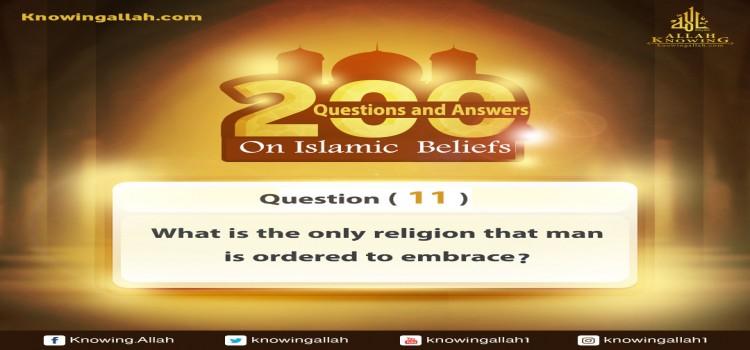Monotheism After the Reformation
Monotheism After the Reformation
With the reduction of the authority and the power of the church, the unitary parties reappeared, and the Trinity became unstable. This was Martin Luther and others’ expression. Luther said, “The Trinity is a weak expression, lacks convincing power, and is never mentioned in the holy books.”
In his book “The History of the Unitarians”, Filbert said, “Calvin announced that, “it is more suitable for the Nicene Creed, which was issued by the Nicene Council, to be a song instead of being a statement of belief.”
When Calvin wrote his book,“The Institutes of Christian Religion”, he seldom mentioned the Trinity.
At the beginning of the twentieth century, the number of Unitarians increased; their contribution became more and yielded about four hundred churches in Britain and its colonies; the same happened in the United States. Besides two theological colleges in Britain that teach Unitarianism - Manchester and Oxford - another two colleges exist in America - one in Chicago and the other in Prickly in California. There are around one hundred and sixty churches or colleges in Hungary, and many others in the Christian European countries. [1]
In 1921 C.E, at a conference held in Oxford, which was attended by many religious scholars, the chairperson was the bishop of Carlyle, Dr. Rachel. He said in his speech, “That his reading of the Holy Bible, does not make him believe in Jesus as God, and for what is mentioned in John’s Gospel, which is never mentioned in the synoptic, cannot be considered as historical.” He also believed that all that was said about Jesus (PBUH): his birth of a virgin, healing diseases, or saying that his spirit preceded human existence - do not mean his divinity. Many of the attendees also shared with him the same opinion.
Emil Lord says, “Jesus did not believe himself to be more than a prophet, even though sometimes he believed that he was less than a prophet. He never mentioned what makes one believe - that he has different views and thoughts from those that are human. Jesus used a new word to express his modesty when he said that he is the Son of Man. In the past, prophets called themselves sons of man to show the difference between them and God.”
In 1977 C.E., seven theologians wrote a famous book titled, “The Myth of the Incarnated God”. In this book, we find that “This group approved that the books of the Holy Bible were written by a group of people in different circumstances, and their words could not be considered as divine. Those who contributed in writing this book believe that there will be some development in theology by the end of the twentieth century.”
Eight theologians in Britain wrote a book called “Jesus is Not the Son of God”. They confirmed what the first book mentioned - they said “The possibility of a human becoming God is unlikely and unbelievable nowadays.” [2]
In April 1984 C.E, London’s Weekend Television had an interview with Bishop David Jenkins, who holds the fourth position among thirty-nine bishops, which are the top of the Anglican Church. He mentioned that, “Jesus’ divinity is not a definite fact, and that he does not believe that the virgin birth and Jesus’ resurrection are historical events.” (Meaning they are untrue).
His words had a huge effect on those who follow the Protestant Church. The Daily-News newspaper gave a questionnaire to thirty-one bishops, out of the thirty-nine, about what Jenkins has said. They published the result of that questionnaire on 25/6/1984 C.E, and it was as follows:
“11 bishops insisted that Christians must consider Jesus both God and human. While 19 said that, “it is enough to consider Jesus as God’s high representative”. Nine bishops doubted the idea of Jesus’ resurrection, and said that it was a series of experiences or feelings, which convinced his followers that he was alive among them. Fifteen bishops said, “The miracles, which are mentioned in the New Testament, were added to Jesus’ story later”. This means it cannot be evidence of his divinity.[3]
Thus, the church, and its bishops, doubt the idea of Jesus’ (PBUH) divinity and reject it. They confess that it is an additional belief to Christianity. They also affirm that neither Jesus (PBUH) nor his disciples knew it, and that Paul, those who followed him and wrote the Gospels and the Epistles, and the church councils, originated it.
From the above, we find that Monotheism is an original movement in the Christian community. This movement renews whenever those who are faithful look in their Holy Books. It refreshes their vision, and announces the clear truth, that there is no God but Allah (S.W).
--------------------------------------------------------------------------------
[1]- Monotheistic Christians in History, Ahmad Abdul Wahab, pp 45-53
[2]- Differences in the Holy Bible Translations, Ahmad Abdul Wahab, pp 113
[3]- The Church of England Bishops and Jesus’ Divinity, Ahmad Deedat, pp 29-31, Differences in the Holy Bible Translations, Ahmad Abdul Wahab, pp 114-115



